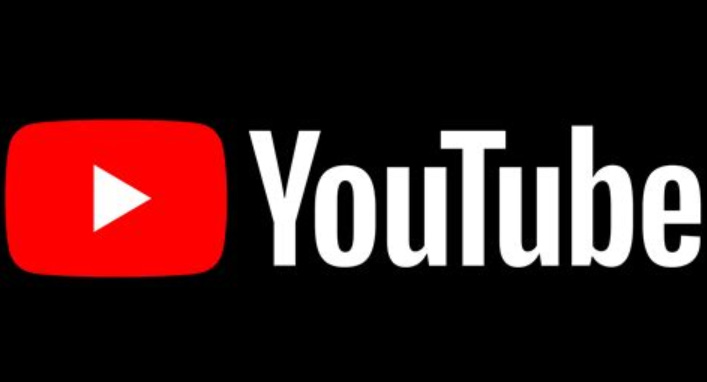Demi Moore Will Win the Best Actress Oscar. To Be Successful in 2025, Writers Need to Do What She Did.
Use social media to tell a great story.
If there’s a recurring theme to my posts here, it’s that for those of us who love writing stories, this is the best of times and the worst of times.
For writers drawn to journalism or wanting to write traditionally published books or traditionally produced movies or TV shows, well, it really is the worst of times. And all indications are that on this side of things, it’s going to get worse and never get better.
The reason why is simple and obvious: rather than reading books or newspapers, or watching movies or even TV, people now spend time on social media. I’d argue social media has also reduced attention spans, especially among young people.
At the same time, the rise of social media has created massive new opportunities for writers — and major new revenue streams. This is what I mean by saying that, in a way, it’s “the best of times” for some writers right now.
In the past three years, YouTube paid out $70 billion to content creators posting on that platform.
And that’s just the money earned in ad-share revenue. In 2025, posters on YouTube can also make money with sponsorships, affiliate links, merchandising, and many other opportunities.
And, of course, YouTube is just one social media platform. Other platforms creating revenue for creators include Instagram, TikTok, X, Substack, Patreon, Medium, OnlyFans, and many more.
For comparison purposes, Hollywood pays all screen and TV writers less than five hundred million dollars a year.
But for a writer to flourish in this bold new world of social media platforms, he or she has to understand how things work.
In a way, it’s still very much about storytelling. The more compelling your story on social media, the more money you make — literally. Indeed, the whole point is to go “viral” so that as many people as possible will share and experience your story.
And here’s something I never thought I’d admit about social media: these different platforms really do encourage creativity — storytelling creativity but also a kind of entrepreneurial ingenuity.
In Margo’s Got Money Troubles, the zeitgeist-y new novel by Rufi Thorpe, a young mother desperately needs money, so she starts an account on the amateur porn site OnlyFans. Her first few fans respond to it because of her unusual approach to eroticism.
Problem is, she quickly realizes that while the money is good on OnlyFans, there’s no discoverability — no way to go viral. She solves the dilemma by realizing she can go viral on Instagram and TikTok, especially if she creates ever-more-compelling content, and that exposure will feed directly to her OnlyFans page.
In other words, she comes to understand how media works in 2025: how it’s ultimately about understanding and manipulating stories — always with one eye on how to monetize one’s success.
To take a real-world example, there’s a reason why Demi Moore is probably going to win the Best Actress Oscar for The Substance at this year’s Academy Awards: because her personal life-experience is a really good story. She started telling it in her heartfelt but also shrewd acceptance speech when she won the Golden Globe for Best Actress in a Comedy or Musical Film, which instantly went viral across almost all social media platforms.
She talked about how, despite being a huge star in the 1990s, she was never taken seriously as an actress — that, in fact, she’d never won a single acting award before that Golden Globe.
Once she’d established that, and once it had gone viral, there was really only one way for her story to end: for her to now go on and win the Oscar. Moore is creating very compelling social media content — and now she’s going to reap the rewards.
Likewise, I knew the movies X and Longlegs were going to be big hits when I read on social media about their stunt castings, even before I’d heard the movies’ plots — the same woman playing the younger protagonist and the older villain in X, and Nicholas Cage unrecognizable as a bonkers serial killer in Longlegs.
Finally, there’s a reason why Donald Trump is president of the United States right now, and Kamala Harris isn’t. During the campaign, he told an outrageous and admittedly attention-getting story: the United States is in rapid decline because of criminal immigrants, unqualified Blacks, and insane transgender people.
Meanwhile, Democrats are floundering because while they’re pretty great at governing, they’re terrible at telling stories. Frankly, because they still don’t understand modern media, they’re not telling any story at all. At best, they’re still talking about issues and all the abstract laws that Trump is breaking — precisely the kinds of “boring” things that never go viral.
This last example might offend you. You might argue that Trump is lying — that he’s nothing but a racist demagogue.
And I’d agree with you! But I still think Trump understands modern media in a deeply intuitive way — far better than the Democrats.
You also might be disturbed by what this all says about America in 2025: that we’re so stupid and short-sided that we’ll believe an outrageous lie over the more boring truth, especially if presented as part of an entertaining narrative. Or, at the very least, we’re obsessed with attention-getting gimmicks in place of stories of quality and substance.
I’d mostly agree with this too.
That said, this is the world we’ve all collectively chosen to inhabit — and that is now being further forced onto us by seemingly all-powerful media companies whether we want it or not.
All this said, you can still create stories of quality and substance.
But to sell those stories to the public, well, you’re much better off if there’s something instantly recognizable either about the story or about you that you can use to pitch the story on social media.
I’ve written before about how I struggled in my own writing career — until I realized that as a digital nomad, I could tell the story of my travels around the world, ultimately creating a large platform in the form of a very successful travel newsletter.
Then I used the success of that particular story to help sell some “old media” projects: two upcoming travel-related novels — and hopefully, a feature film as well.
Have I convinced you how successful storytelling works in 2025?
If so, you might be asking yourself: even if one concedes what I’m saying here, isn’t AI poised to completely upend media and storytelling all over again, making everything I’m saying here moot?
And all I can say in response is: Yeah — and probably sooner than we think.
But all we can do about that is wait and see and hopefully figure out what to do about it when it finally happens.
See also…
The Secrets to Being a Successful Writer — and More Importantly: How Much Money Do I Make?
How Do You Successfully Self-Publish Your Book?
It’s Not You. It’s Really, Really Hard to Get a Major Book or Movie Deal Right Now
Is It Still Worth It for Writers to Put Up with All the Bullshit?
Brent Hartinger is a screenwriter and author. Check out his other newsletter about his travels at BrentAndMichaelAreGoingPlaces.com.






Thank you. Keep writing stories like this one. They make me feel less alone and helpless.
Beautifully
Espoused. And, sadly, so true.